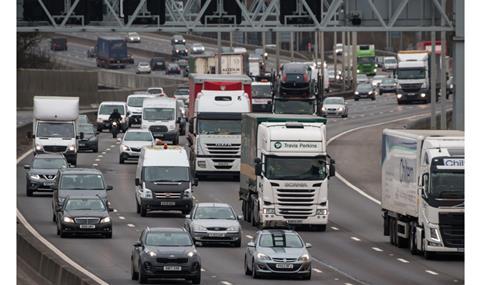
The Institute for Fiscal Studies has recommended a new system of road pricing to compensate for the £28bn loss in revenue from fuel duty as the UK makes the gradual shift to electric vehicles.
In a new report, the FSI said the new measures should apply to all road vehicles and would therefore impact fleet operators.
A 2p/litre cut in fuel duty rates would cost about £1bn a year, the IFS confirmed. But revenue from existing motoring taxes, which raise £40bn a year, will shrink in the next few decades if the government’s goal of achieving zero net emissions by 2050 is met.
The IFS has therefore recommended an immediate government review of motoring taxation “before expectations of low-tax motoring become ingrained.”
“A system of road pricing where charges vary by time and location is the best way to incorporate the costs of congestion into the prices paid by drivers,” it explained. “Such systems are technologically feasible and are used in a number of cities worldwide.
"Failing that – or, better, as a stepping stone towards it – the government could introduce a flat-rate tax per kilometre driven, which would at least continue to raise revenue and discourage driving once alternatively fuelled vehicles replace petrol and diesel ones.
Read more
- Industry welcomes reported plans to cut fuel duty in autumn budget
- Pay-per-mile road user charging for London could boost freight efficiency, says report
- New cross-party parliamentary group to focus on post-Brexit growth of electric vehicles
“In the meantime, with conventionally fuelled cars still common, the government should move to monthly indexation of fuel duties in line with the Consumer Prices Index. There is no case for the recurrent ritual of the past eight years, when planned inflation uprating of fuel duties has been repeatedly cancelled for one more year while assumed to recommence thereafter. But to tackle the harm that driving does, now and in the future, the government should look beyond the existing set of taxes.”
However, EV charging business Engenie claimed the IFS recommendations are misguided: “If the government is serious about achieving net zero emissions by 2050, it needs bold policies that create an attractive trading environment for zero emissions vehicles over traditional internal combustion engines," said CEO Ian Johnston.
“Rather than introducing a road pricing scheme that applies to all motorists, it needs to – in the short term at least – consider increasing fuel duty. Disincentivising drivers to switch to EVs risks our Paris Agreement commitments.”
Christopher Snelling, head of UK policy at the FTA, also claimed there may be a better way to tackle the issue: “As the voice of the UK logistics sector, the FTA does not necessarily oppose this policy,” he said. "Depending on the form it takes, it could bring huge benefits to the industry through reduced journey times and increased reliability, as road users are encouraged to use the network more efficiently to keep payments to a minimum.
"Road congestion currently costs UK businesses nearly £8bn per year, with an HGV stuck in traffic costing operators £1 per minute; any scheme which potentially reduces congestion is to be taken seriously. Once the transport sector has moved substantially away from carbon fuels, road pricing could indeed be a viable alternative to fuel duty.
“But, in the view of the FTA, road pricing is not the most effective way to address environmental emissions and to maximise the role of alternative modes such as rail or water. After all, most road freight is simply not suited to rail or water; investment in these modes presents a far more effective tool for increasing their modal share.”














